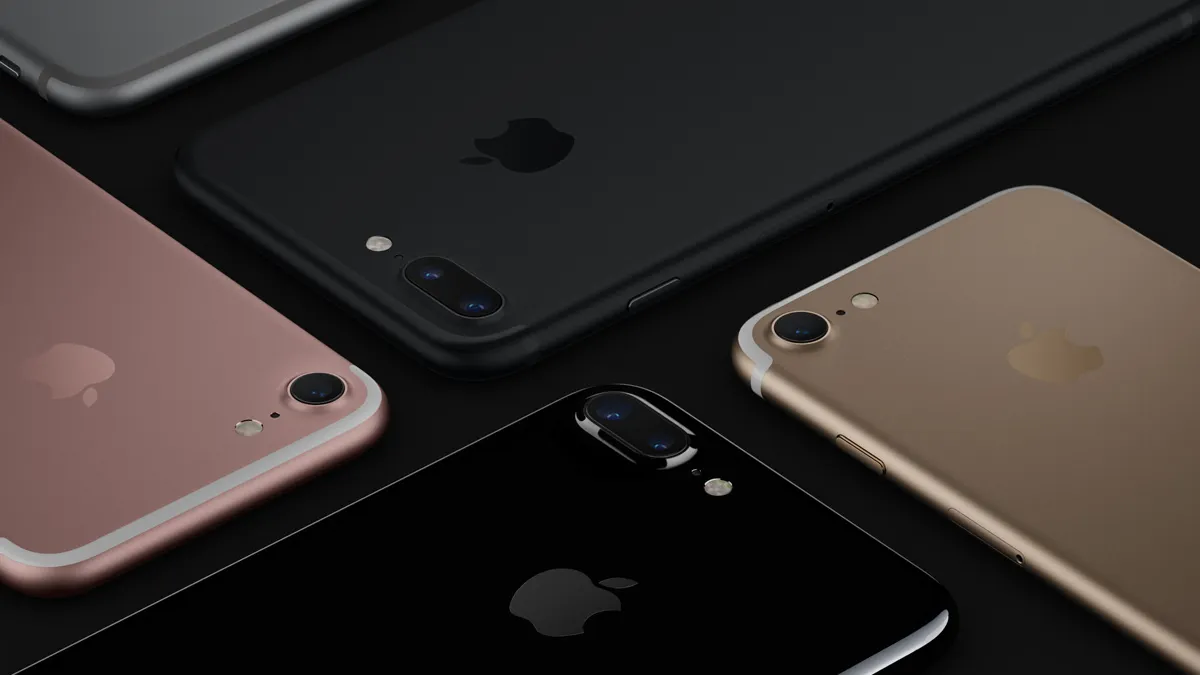Dive Brief:
- IPhone unit shipments declined 1% compared with the previous year for a total of 50.8 million during Apple's fiscal Q2 ended April 1, the company reported in a press release. Analysts expected Apple to ship 51.4 million iPhones during the period.
- During a conference call with analysts to discuss the results, Apple CEO Tim Cook said a pause in iPhone purchases is taking place, which he attributed to "earlier and much more frequent reports about future iPhones," according to a transcript of the call on SeekingAlpha.com.
- Despite the drop in unit shipments, revenue derived from iPhone sales increased 1% for a total of $33.2 billion. Overall, the company's revenues were up 5% for a total of $52.9 billion.
Dive Insight:
At this point it is not a surprise to anyone in the mobile industry that smartphone sales are reaching saturation levels, meaning the rapid growth rates from earlier years are disappearing. But even in this newer, more subdued environment, Apple’s numbers for the iPhone are surprisingly weak. Not only did shipments miss analysts’ forecasts but recent research from 451 Research that was cited by Steven Milunovich of UBS Securities during the conference call reveals that iPhone purchase intent is at a nine-year low and the retention rate for iPhone customers has declined to 80%.
Cook’s comments that published reports about the upcoming iPhone 8 release are responsible for a “pause” in purchases sound plausible, to an extent. Apple has trained consumers to expect a new iPhone every fall and, in the past, many put off buying a new iPhone towards the middle of the year in anticipation of being able to own the latest-and-greatest model. Research also shows that, as the smartphone space matures, more smartphone owners are waiting longer to replace old phones. However, Cook’s comments are also damning in that they suggest the market perception of the iPhone 7, which was introduced last fall, has not been strong enough to make consumers feel like they have to buy it. As a result, the comments reinforce statements by analysts and the press that Apple has lost some of its innovation.
There will be lots of prognostications over the coming months about why iPhone sales are hurting and if a rebound is likely but for marketers, the numbers underscore how mobile marketing is no longer just about creating iOS experiences. With the Samsung Galaxy 8 getting strong reviews and Android penetration continuing to grow, even surpassing Microsoft's Windows OS recently, savvy brands will look to develop engagements that take advantage of the unique characteristics offered by these platforms.











